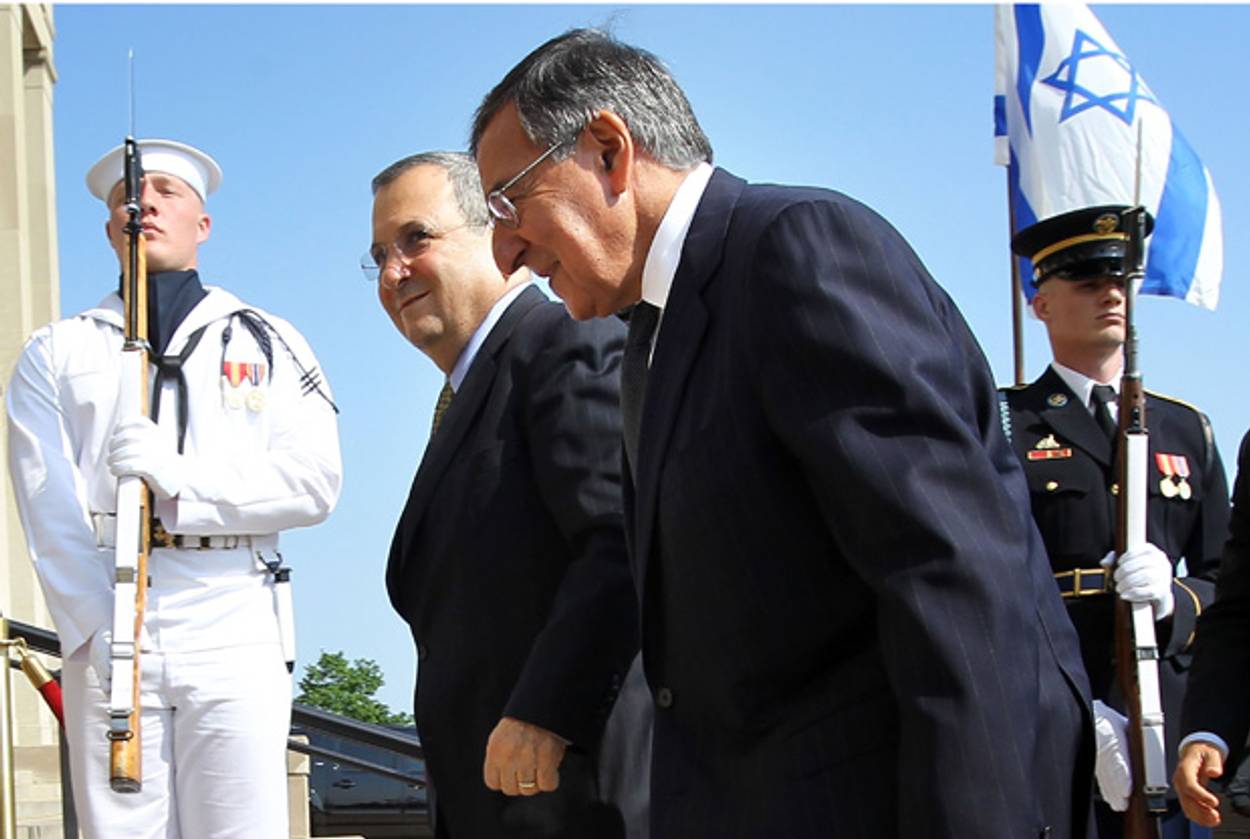Israel May Back International Iran Position
Barak hints deal to be proposed this week would be acceptable




We know what the P5+1 countries’ offer to Iran will be in Baghdad on Wednesday: you stop enriching uranium to 20 percent; move all of your 20 percent enriched uranium out of the country; and stop activity at Fordo, the heavily bunkered facility near Qom. In exchange, we will help you operate a small reactor that can be used for medical purposes and will not push for further U.N. sanctions. Crucially, what the P5+1 will not offer is an easing of the European Union oil embargo set to go in effect July 1—which is what Iran will really want, judging from its negotiator’s own words as well as reports that the embargo will reduce Iran’s already hurting oil exports by 500,000 barrels a day. The G8 countries, meeting this weekend, affirmed their agreement on Iran, which is important. They are unified and not willing to give away what’s most important.
Little wonder that entering the weekend, U.S. officials were feeling optimistic. They also seemed aware of the two stakeholders that needed to be brought onboard the P5+1’s plan: Iran, of course, and Israel. Interestingly, they tried to paint, at least to a reporter, the new Israeli governing coalition as something that strengthens Prime Minister Netanyahu’s hand to deal with Iran (as opposed to, say, weakening or diluting it). The administration wants Iran to believe that Israel remains dead serious, and it wants Israel’s leaders to know it respects them.
Something in the mix of public and private diplomacy could be working on the Israelis: though the government’s official position is that Iran must halt all enrichment—which is a nice objective, but isn’t really a viable negotiating stance—Defense Minister Barak, who besides Netanyahu is the key man pushing for military action, has clarified that Israel would accept the reduction to 3.5 percent enrichment that the P5+1 plan to propose. (This puts Barak at odds with putative Republican presidential candidate Mitt Romney, whose spokesperson warned, “The fact of an agreement with Iran that you can wave in the air is not what we need.”)
Israel would likely insist that activity cease at Fordo. Indeed, Fordo’s inclusion on the P5+1’s list is almost certainly a direct nod to Israel: that facility’s relative impenetrability is what has put the United States and Israel, which have varying military capabilities, onto different timelines. When the centrifuges at Fordo in particular spin, they enrich not only uranium but also the chance of an Israeli attack.
Assuming Barak’s word is good, this means the ball is in Iran’s court. Let’s remember that’s what everyone should want: only Iran can 100 percent turn off Iran’s alleged nuclear weapons program; and if Iran is given a plausible way out and decides to press on anyway, then a military attack—by Israel or the U.S.—can’t be drawn as—or honestly judged—an act of unprovoked aggression.
Six Nations Agree on Nuclear Proposal to Iran [LAT]
Heading Into Talks With Iran, U.S. Sees Hopeful Signs [NYT]
U.S., Iran Seek Closer Ties Alongside Nuclear Program [Haaretz]
Israel Inches Closer to Compromise on Uranium Enrichment, Officials Say [Haaretz]
Romney: No Devastating Defense Cuts or Fake Iran Deals [WP Right Turn]
Related: How Iran Talks Were Saved From the Verge of Collapse [Al Monitor]
Marc Tracy is a staff writer at The New Republic, and was previously a staff writer at Tablet. He tweets @marcatracy.